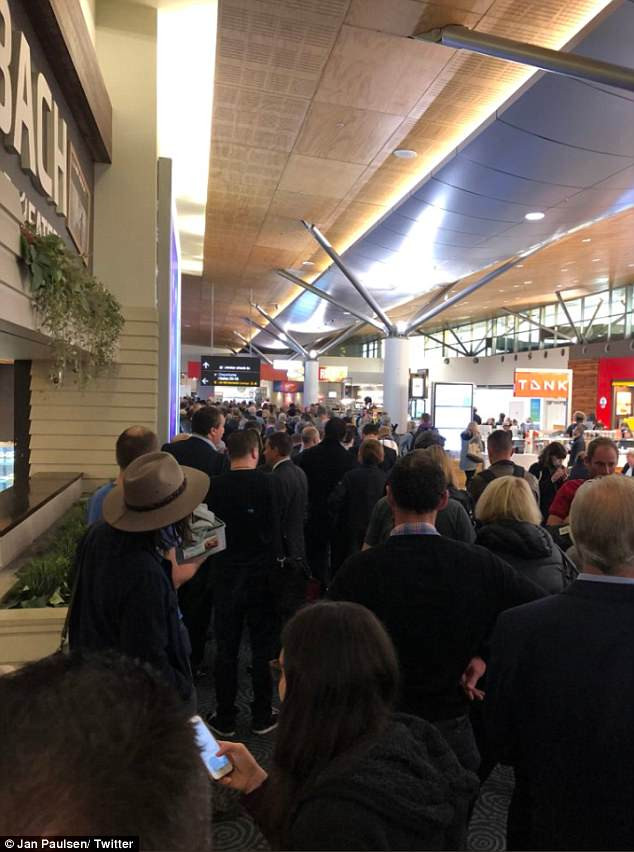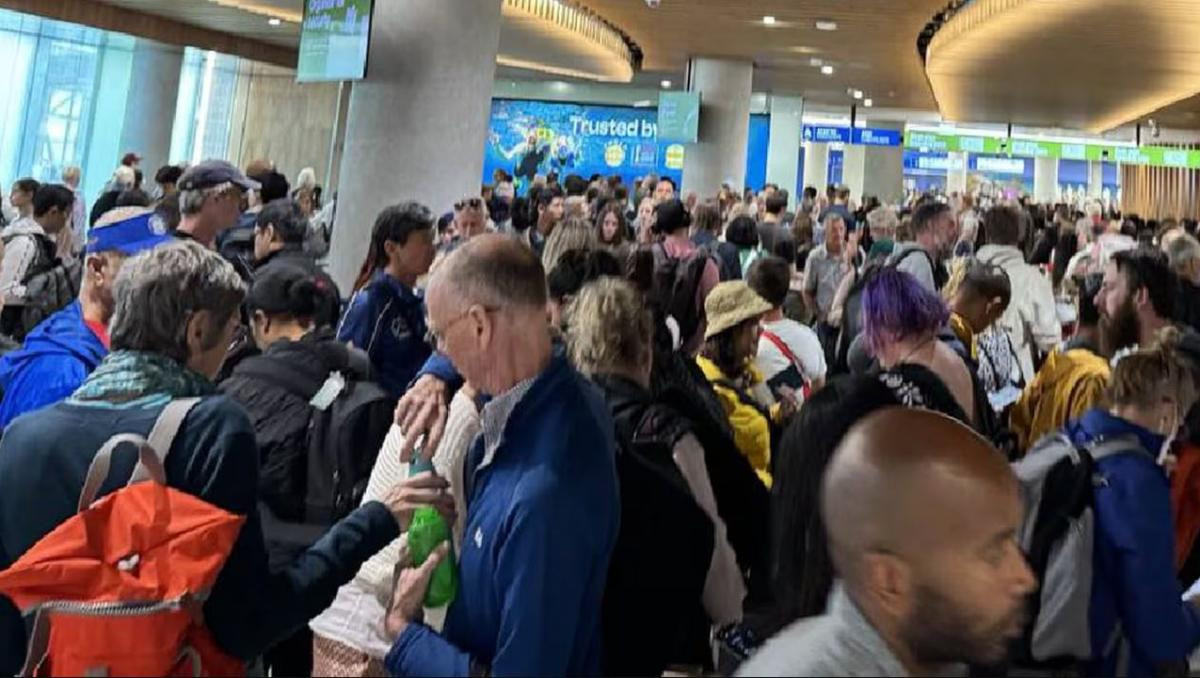Auckland Airport Security Breach Causes Major Disruptions
This morning, Auckland Airport's domestic terminal experienced unprecedented chaos following a security breach that resulted in significant delays and flight cancellations. The incident, which began around 6:40 am, involved a passenger who refused to comply with standard security screening procedures. This led to a ripple effect of disruption that impacted countless travelers.
The Incident Unfolds
A spokesperson for Aviation Security Services (Avsec) stated that a passenger disregarded instructions during screening, proceeding into a restricted area before the process was completed. Avsec officers swiftly located and removed the individual from the restricted zone. However, the unauthorized entry triggered a mandatory rescreening of the entire terminal.
The Aftermath: Rescreening and Extensive Delays
The rescreening process caused extensive queues and delays. One traveler shared images on social media, illustrating a line of passengers stretching the length of the airport. While Avsec confirmed that there was no ongoing safety or security risk, the comprehensive rescreening was necessary to ensure compliance and passenger safety. The incident highlighted the stringent security measures in place at New Zealand airports.
Impact on Flights and Passengers
The security breach had a significant impact on flight schedules. Air New Zealand reported the cancellation of four flights and numerous delays. Jetstar also experienced delays, though their disruption was less severe. Passengers were advised to contact their respective airlines for updates on their flights and potential re-accommodations.
The delays extended beyond Auckland. There were cascading effects on flights scheduled to land or depart from other airports. Passengers across New Zealand were encouraged to monitor their flight information meticulously.
Passenger Experiences: From Frustration to Cooperation
The response from passengers varied, from frustration and annoyance to understanding and cooperation. Social media platforms were flooded with comments ranging from descriptions of lengthy queues and 'absolute chaos' to expressions of gratitude for the airport staff's efforts in managing the situation. The patience and cooperation of many travelers in the face of considerable disruption was widely acknowledged.
Ongoing Investigations and Future Prevention
Avsec has initiated a thorough investigation into the incident to determine the contributing factors and identify potential improvements to security procedures. The investigation will focus on clarifying the actions of the non-compliant passenger and establishing protocols for prevention of such incidents in the future. Furthermore, the review will assess the efficiency of the rescreening process. The goal is to balance security with minimal disruption to travelers.
A Recurring Issue?
This is not the first time that Auckland Airport's domestic terminal has faced significant disruption due to security-related issues. Earlier this month, lengthy queues were reported due to upgrades to a security machine. Last November, disruptions were caused by a combination of a large influx of concertgoers attending Coldplay and Pearl Jam concerts, as well as a malfunctioning security scanner. This raises concerns regarding the airport’s preparedness for potential security disruptions and the need for resilience and robust contingency planning. The recent security breach underscores the need for ongoing improvements to airport infrastructure and security protocols. Improved coordination among airlines, authorities, and airport management is also essential to minimize disruption during such incidents.
Looking Ahead: Lessons Learned and Future Improvements
The Auckland Airport security breach serves as a crucial reminder of the importance of maintaining stringent security measures while mitigating disruptions to air travel. The incident exposed the need for robust contingency plans to handle security breaches swiftly and efficiently, minimizing passenger inconvenience and ensuring the uninterrupted flow of air travel. It is hoped that lessons learned from this experience will lead to significant improvements in airport security protocols and passenger management.
The event has highlighted the vulnerability of airport operations to unexpected security issues. Addressing these vulnerabilities requires a multi-pronged approach involving advanced security technology, well-trained staff, clear communication strategies, and effective coordination among all stakeholders. The hope is that future incidents will be handled with greater efficiency and with minimized impact on air travelers.


















